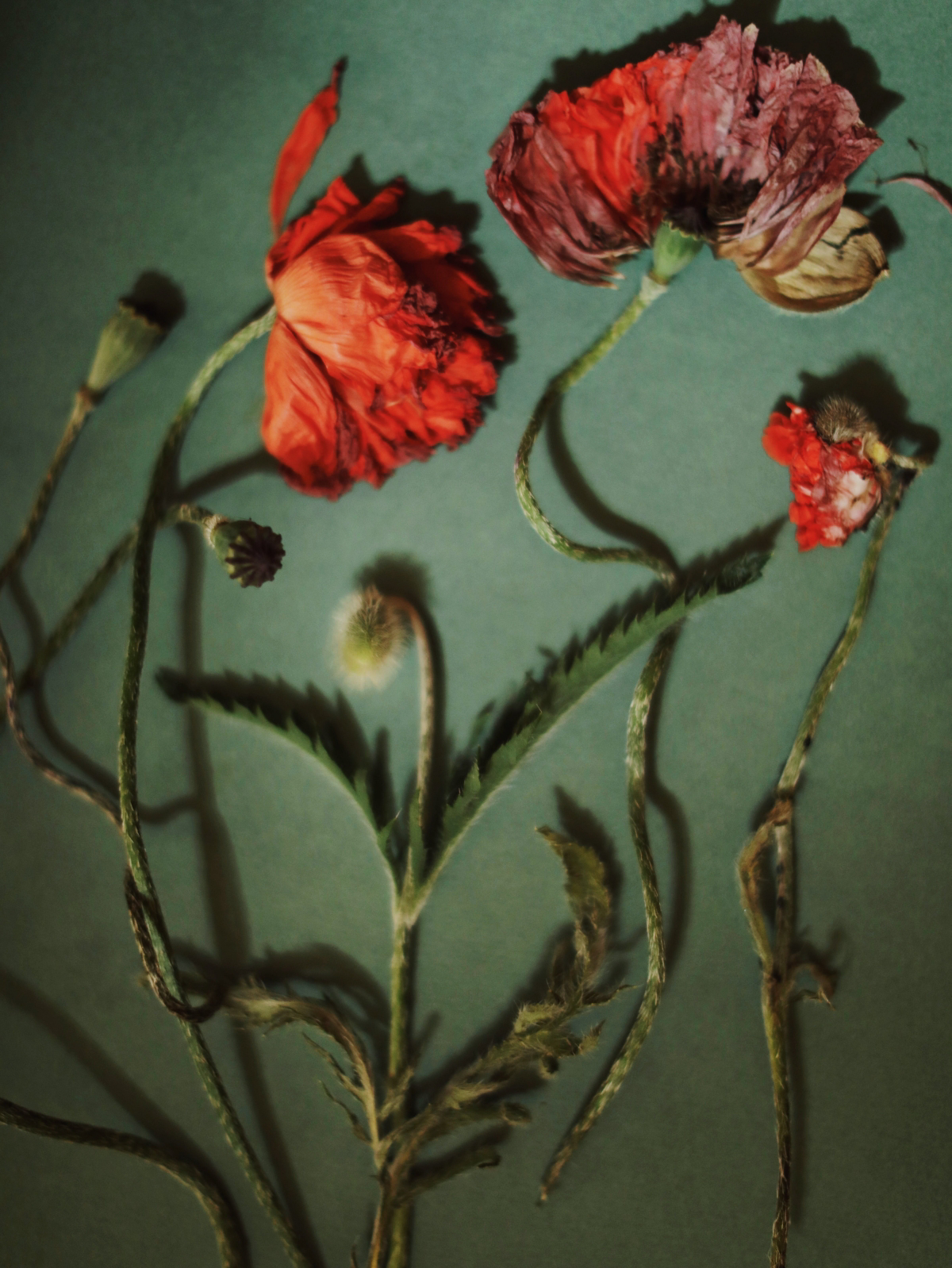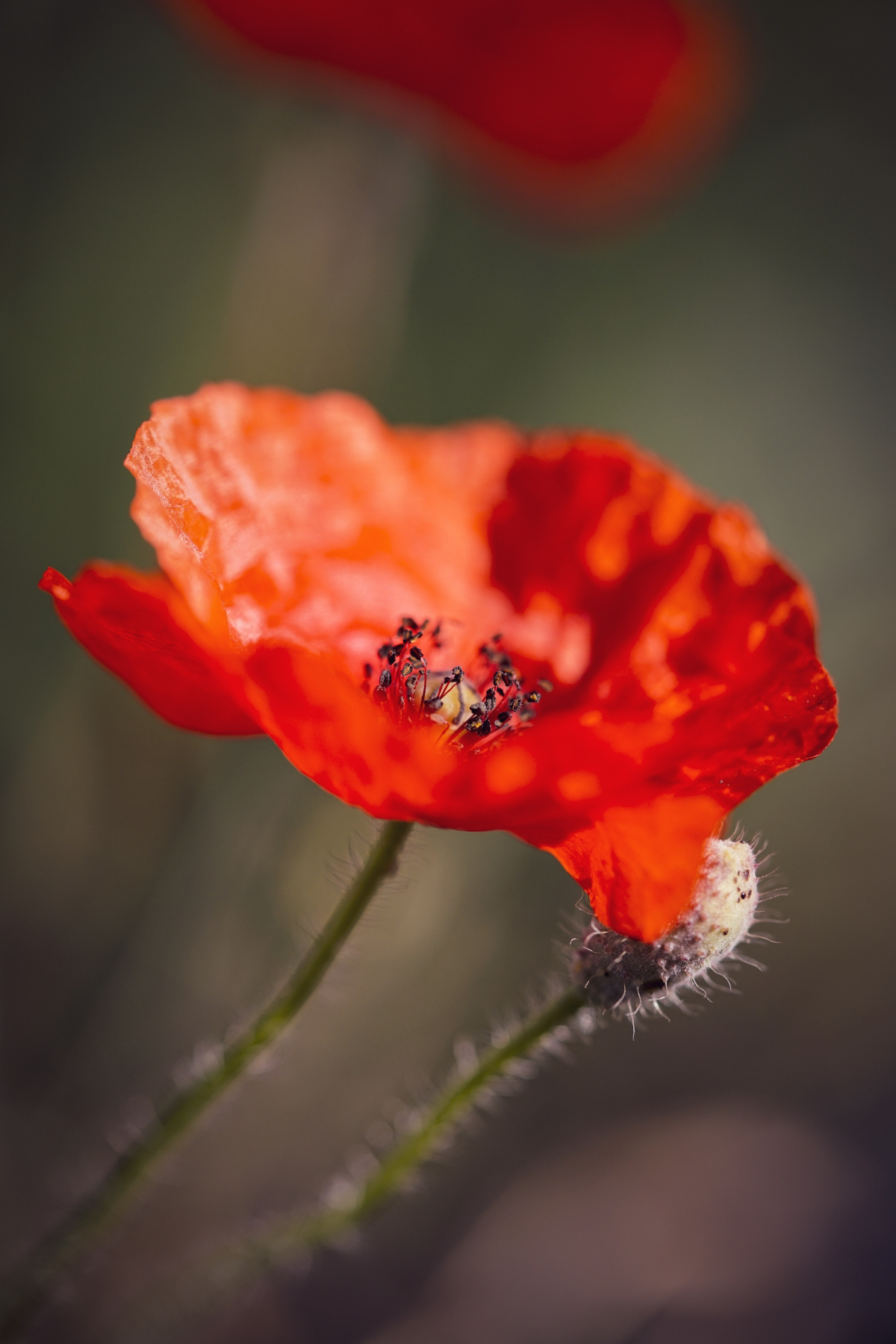Poppies 101: Your Go-To Guide for Growing & Caring for Poppies
There’s a certain kind of magic that blossoms in the presence of poppies. Their delicate petals unfurl like secrets whispered by the wind, revealing hues that range from fiery reds to soft pastels. In the world of gardening, poppies are the enchantresses that beckon you into their realm. In this comprehensive guide, we’ll unveil the art of caring for these floral treasures. From understanding their varieties to expert tips on planting and maintenance, prepare to embark on a journey into the captivating world of poppies. Discover the art of caring for the poppy – from its varieties to expert tips […]

There’s a certain kind of magic that blossoms in the presence of poppies. Their delicate petals unfurl like secrets whispered by the wind, revealing hues that range from fiery reds to soft pastels. In the world of gardening, poppies are the enchantresses that beckon you into their realm. In this comprehensive guide, we’ll unveil the art of caring for these floral treasures. From understanding their varieties to expert tips on planting and maintenance, prepare to embark on a journey into the captivating world of poppies.
Discover the art of caring for the poppy – from its varieties to expert tips on planting and maintenance
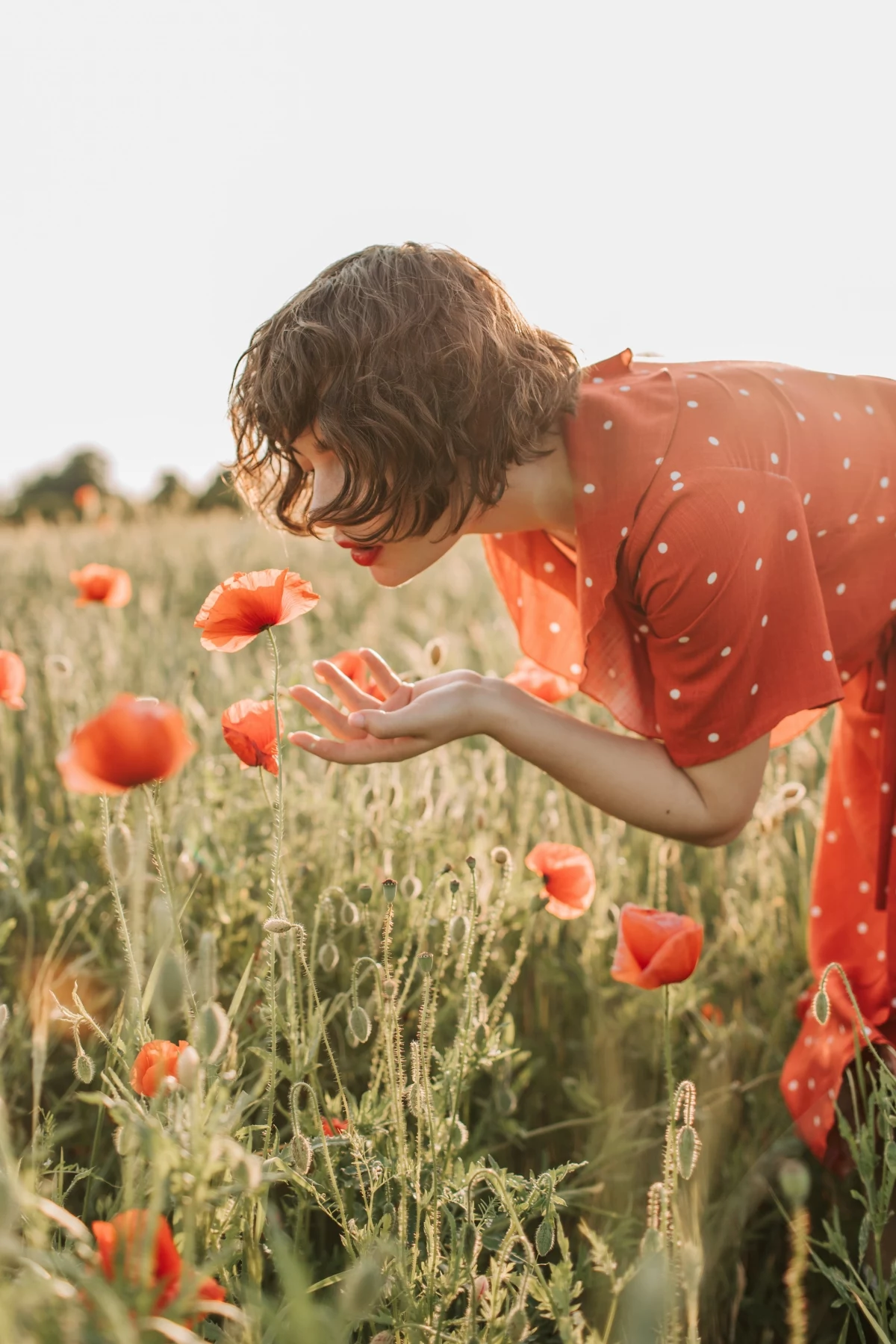
What are Poppies?
Poppies, scientifically known as Papaver, belong to a diverse family of flowering plants. They are renowned for their striking, often solitary, blooms characterized by delicate, crinkled petals and contrasting centers. Poppies are not only known for their aesthetic charm but also hold cultural and historical significance. They have been admired for centuries, symbolizing various attributes such as beauty, fertility, and remembrance. These flowers come in a stunning array of species and varieties, each with its unique allure and characteristics.
These vibrant plants are known for their bold red color, as well as cultural and historical significance
Different Varieties of Poppies
The enchanting realm of poppies boasts an impressive array of species and varieties, each with its unique charm and allure. Whether you’re drawn to the bold and dramatic or the delicate and dreamy, there’s a poppy variety that’s perfect for your garden. Let’s explore some of the notable ones:
- Oriental Poppies (Papaver orientale): Dramatic Beauties: Oriental poppies are celebrated for their grandiose presence and large, vibrant blooms that steal the spotlight in any garden. With their striking scarlet, orange, and pink hues, these poppies infuse a touch of drama and extravagance into your outdoor space. They are the showstoppers of the poppy world, commanding attention with their sheer brilliance.
- Icelandic Poppies (Papaver nudicaule): Delicate Dreamscapes: Icelandic poppies, in stark contrast to their Oriental counterparts, offer a delicate and dreamy aesthetic. Their paper-thin petals unfurl in shades of soft yellow, gentle orange, and pristine white, evoking a sense of ethereal beauty. These poppies are like whispers of color, creating an atmosphere of tranquility and grace in your garden.
- California Poppies (Eschscholzia californica): Golden Cheerfulness: Native to the western United States, California poppies are resilient and exuberant bloomers that thrive in arid climates. Their cheerful golden-orange blooms bring a sense of warmth and vitality to gardens, even in the most challenging conditions. These poppies are a testament to nature’s ability to flourish against the odds.
- Shirley Poppies (Papaver rhoeas): Enchanting Translucence: Shirley poppies captivate with their enchanting and almost translucent petals, which span a range of delicate hues from pure white to soft pastels. These ethereal blooms are a favorite among gardeners, creating an air of whimsical charm and serenity. Shirley poppies are like a brushstroke of watercolor in your garden, painting a picture of grace and beauty.
As you embark on your journey into the world of poppies, consider the diversity and unique character that each variety brings to your garden. Whether you seek to make a bold statement, create a dreamy oasis, embrace resilience, or evoke enchantment, there’s a poppy waiting to fulfill your gardening aspirations. The world of poppies beckons with a palette of colors and emotions, inviting you to explore its boundless beauty.
Each of these varities have their own unique charm and allure
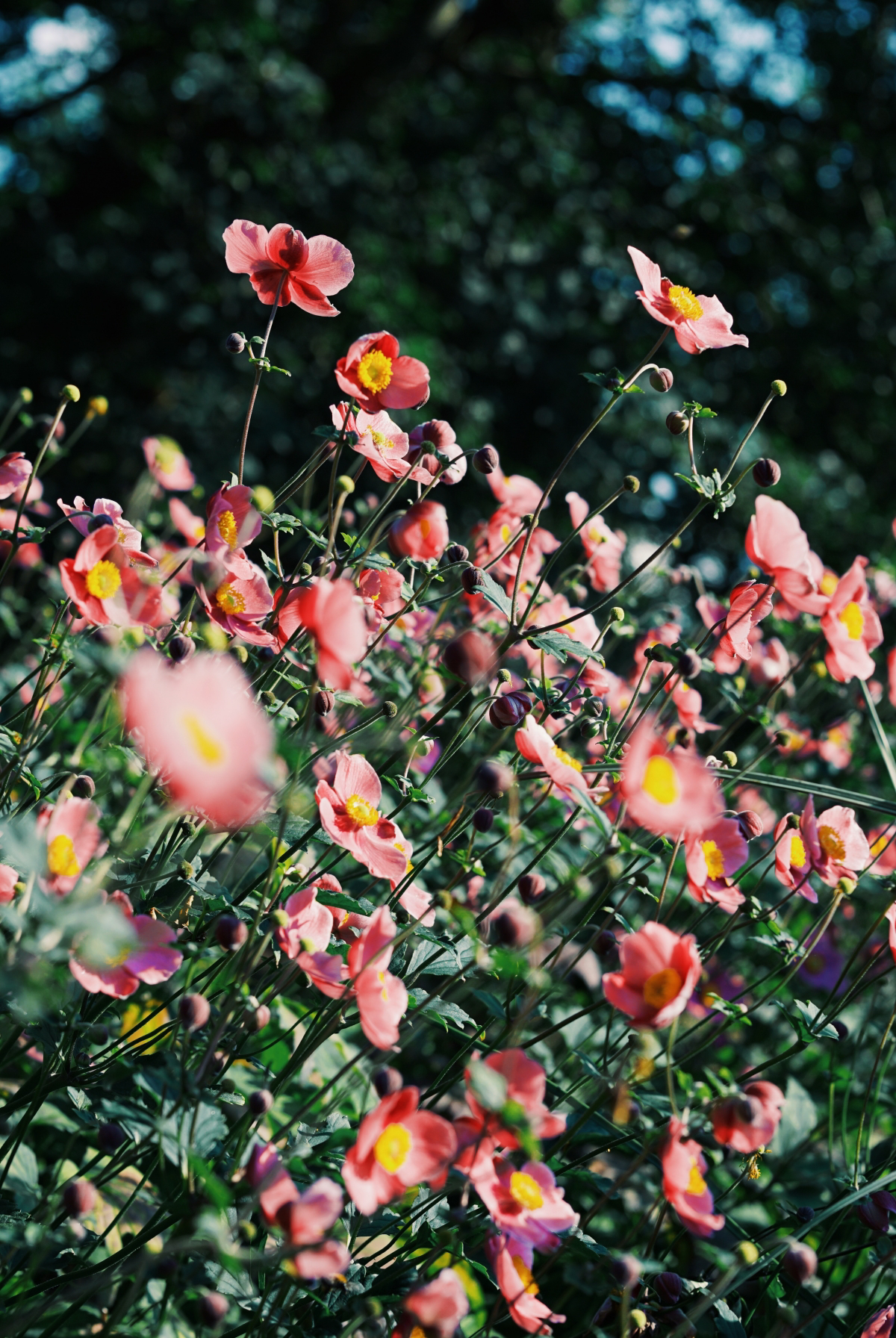
Who Should Plant Poppies?
The allure of poppies knows no bounds, making them an ideal choice for various individuals and occasions. Whether you’re a seasoned gardening enthusiast or simply wish to bring a touch of the wild into your surroundings, poppies offer a captivating addition to your world. Here’s a closer look at who should consider planting these remarkable blooms:
- Gardening Enthusiasts: If you have a natural affinity for gardening and find joy in tending to a vibrant array of blooms, poppies deserve a prominent place in your garden. Their striking colors and unique form will undoubtedly complement your gardening prowess.
- Nature Lovers: Nature lovers who cherish the great outdoors and desire to replicate its untamed beauty within their own spaces will find poppies to be the perfect choice. These blooms evoke the spirit of the wilderness, allowing you to create a connection to nature right in your backyard.
- Honoring Loved Ones: Poppies hold a profound significance for those who wish to honor and remember loved ones or commemorate significant events. Their symbolic value can serve as a heartfelt tribute in your garden, keeping cherished memories alive.
The perfect plant for nature lovers who cherish the great outdoors
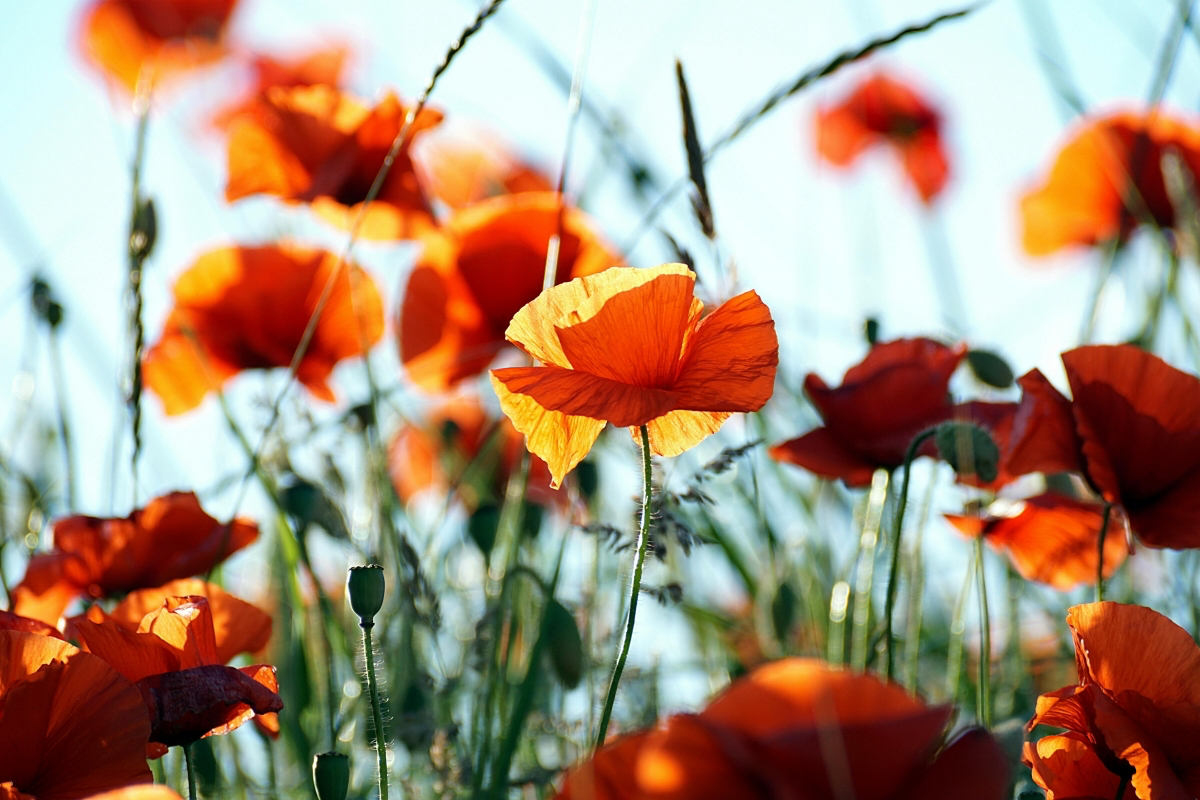
Benefits of Poppies
Embracing poppies in your garden not only enhances its aesthetic appeal but also provides a multitude of benefits, both to your outdoor space and your inner sense of well-being. Here are some of the remarkable advantages of planting and nurturing these flowers:
- Aesthetic Delight: Poppies are unrivaled when it comes to adding vivid splashes of color and an air of sophistication to your garden. Their delicate petals and eye-catching hues transform any outdoor space into a botanical masterpiece, pleasing the eye and uplifting the spirit.
- Low Maintenance: Despite their captivating appearance, poppies are relatively low-maintenance. They thrive with minimal fuss, making them an excellent choice for both novice and experienced gardeners. You can enjoy their beauty without the need for extensive care, allowing you to savor the pleasures of gardening with ease.
- Pollinator Paradise: Poppies are not only a visual delight but also a haven for pollinators. Bees and butterflies are irresistibly drawn to their nectar-rich blossoms. By welcoming these plants into your garden, you contribute to the overall biodiversity of your outdoor haven, fostering a thriving ecosystem.
- Deep Cultural and Symbolic Meaning: Poppies hold profound cultural and symbolic significance in many societies. They symbolize various sentiments, including remembrance, resilience, and hope. Incorporating them into your garden allows you to infuse layers of meaning into your outdoor space, creating a garden that resonates with depth and significance.
Incorporating these vibrant plants into your gardening journey is not merely about cultivating blooms; it’s about embracing a world of color, beauty, and heartfelt connections. These remarkable flowers have the power to transform your garden into a sanctuary of natural wonder and emotional resonance.
These vibrant plants are not only a visual delight but also a haven for pollinators
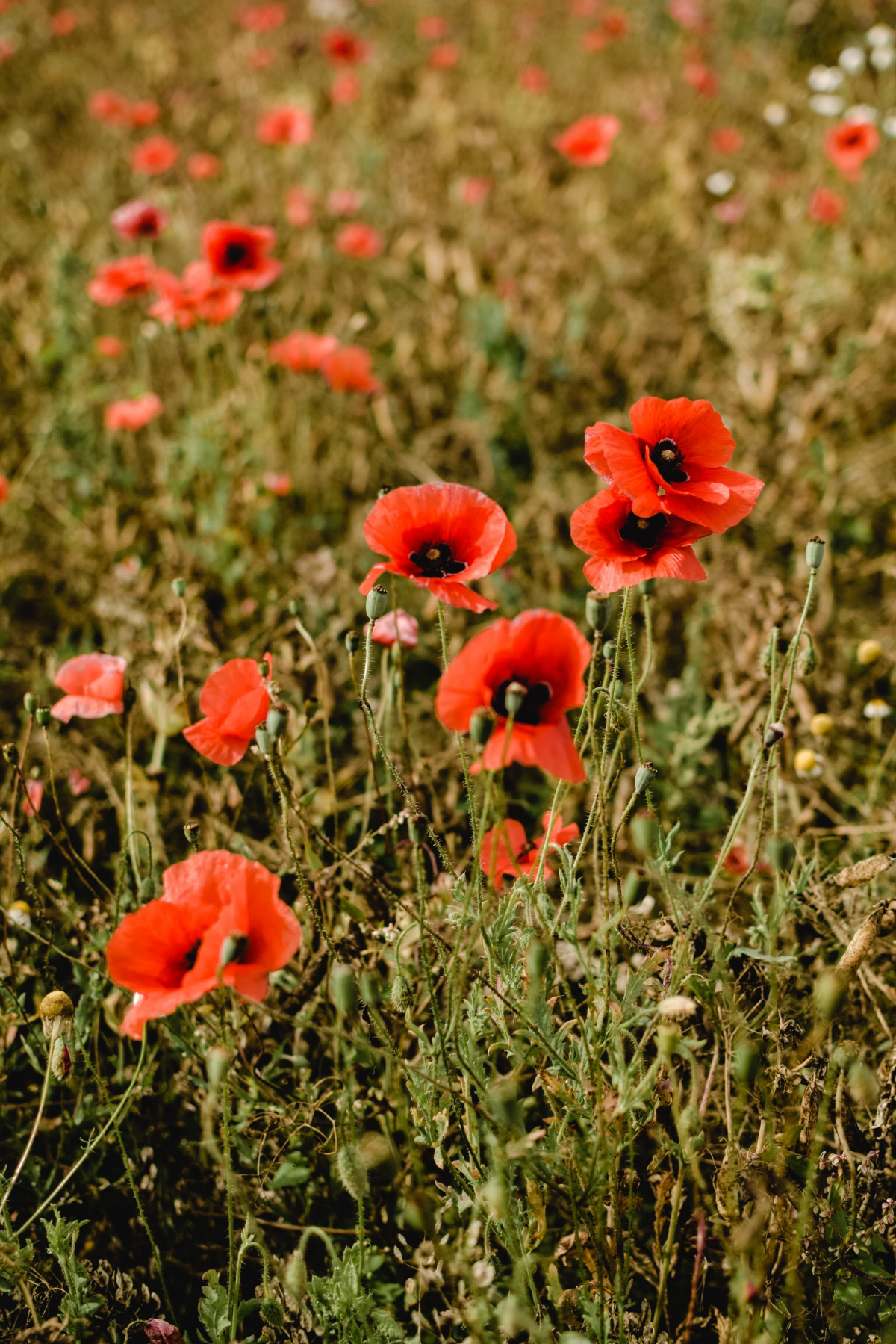
Who Should Avoid Poppies?
While poppies are a delight for most, there are a few considerations for those who might want to exercise caution:
- Pet Owners: Some poppy varieties can be toxic to pets, so if you have furry friends, it’s essential to choose non-toxic options or ensure your pets cannot access the plants.
Some poppy varieties can be toxic to pets, so be careful
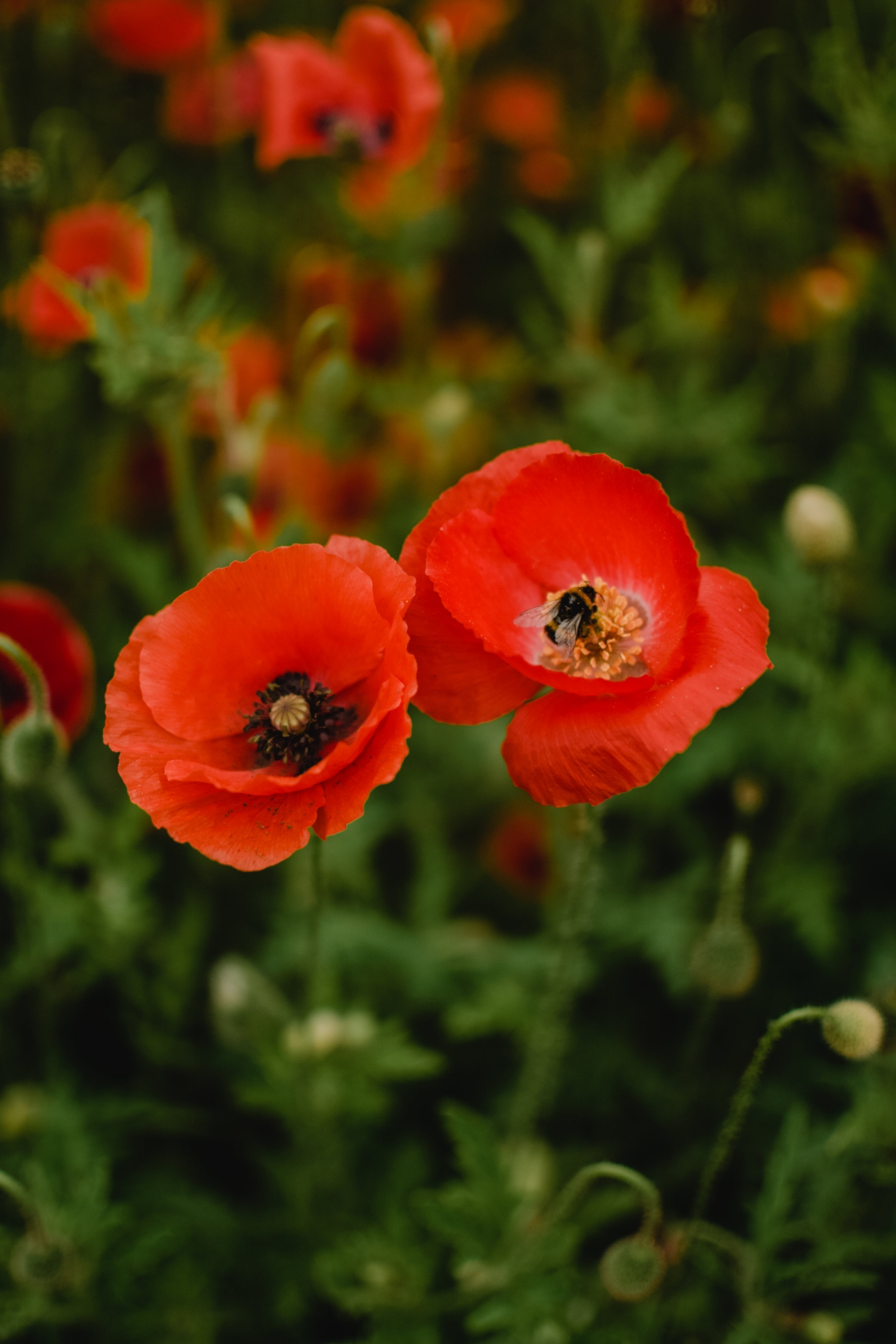
Are Poppies Hard to Care For?
The good news is, poppies are generally not demanding when it comes to care. However, understanding their needs is crucial to ensure they thrive. In the following sections, we’ll explore the art of growing and taking care of poppies, covering everything from planting to pest control.
Understanding the plant’s needs is crucial to ensure it thrives
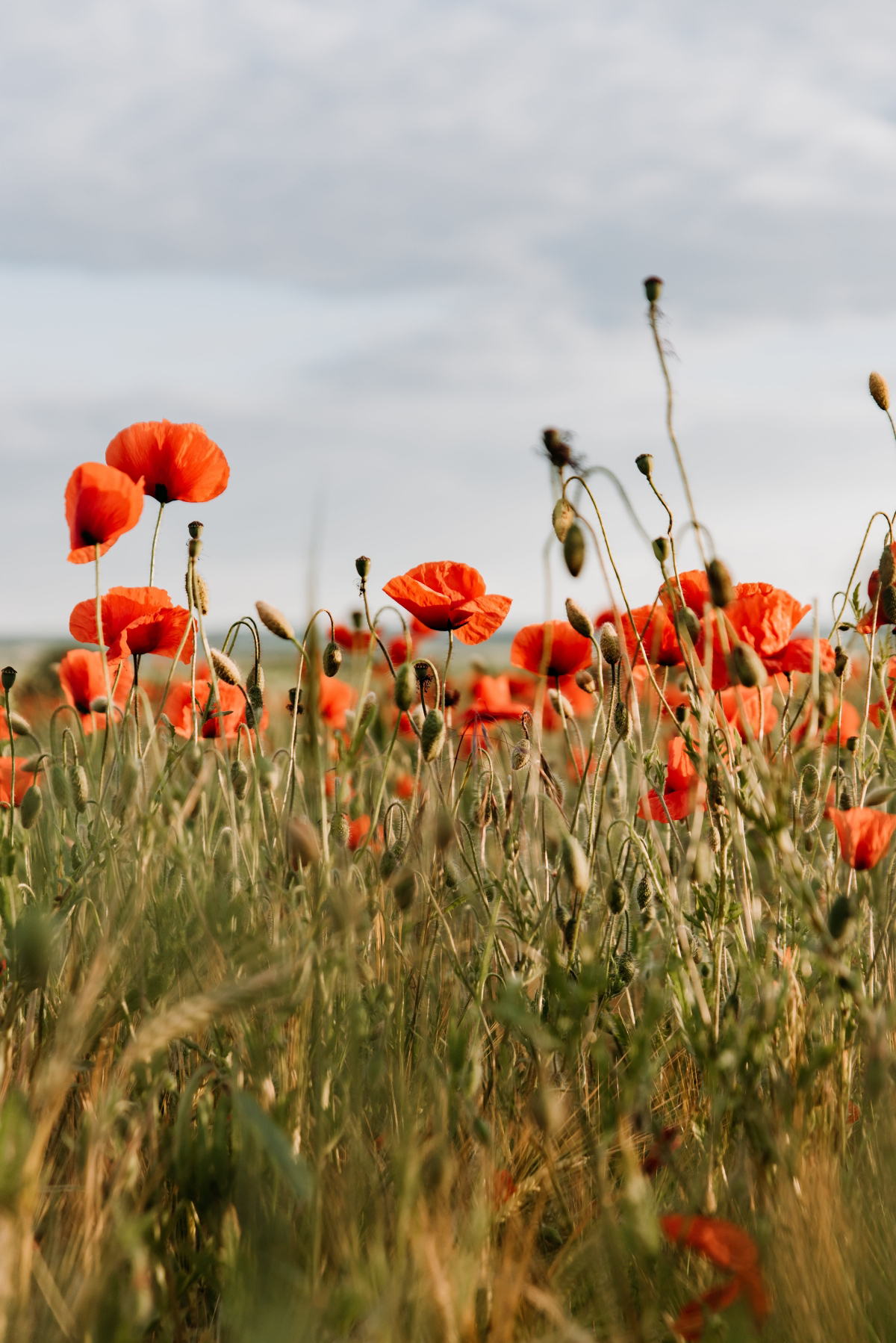
How to Grow and Take Care of Poppies
Cultivating poppies is an art that combines mindful practices and nurturing care. These stunning blooms reward your efforts with their vibrant colors and delicate charm. To help you embark on your journey of growing and caring for poppies, here’s a detailed step-by-step guide:
Here is how to grow and take care of poppies
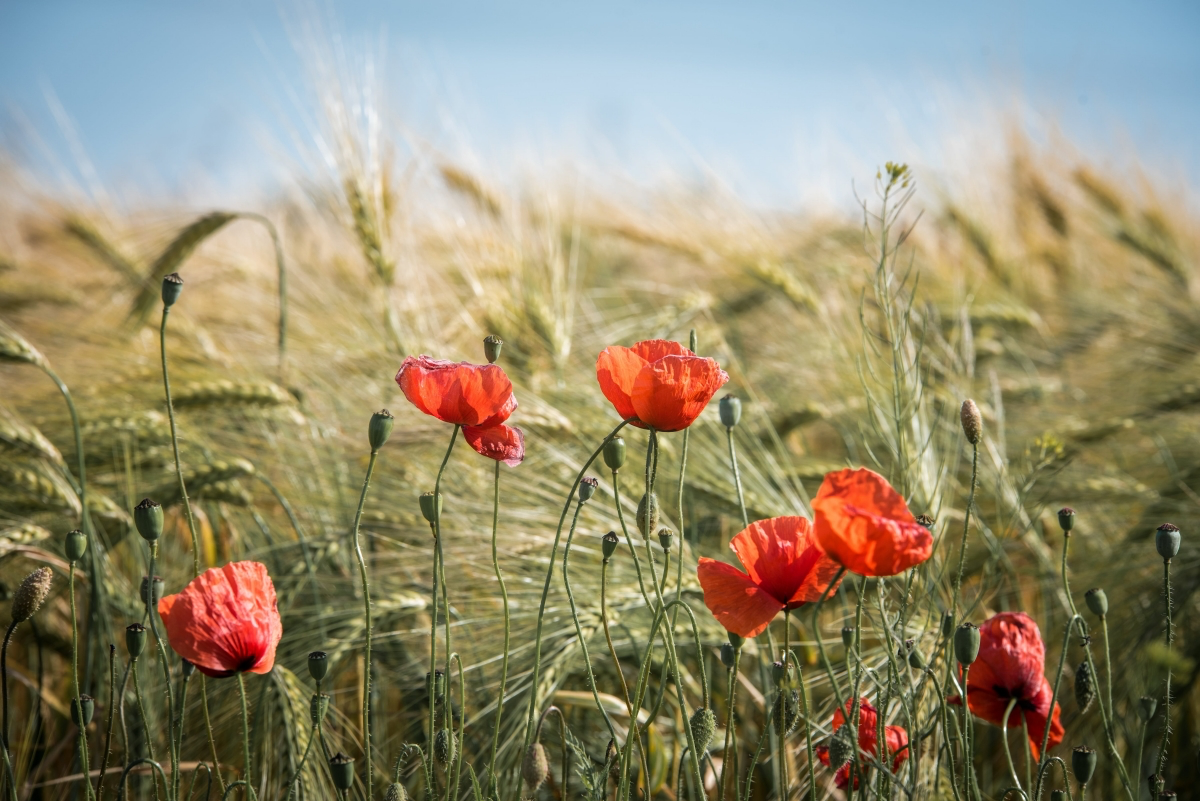
Planting
- Choose the Perfect Spot: Begin by selecting a sunny spot in your garden. Poppies thrive in full sun, basking in at least 6 hours of sunlight daily. Ensure the chosen location offers this essential requirement.
- Prepare Well-Draining Soil: Poppies are particular about soil drainage. Opt for well-draining soil that prevents waterlogging, as soggy roots can lead to rot. If your garden soil doesn’t meet these criteria, consider adding organic matter to improve drainage.
- Timing Matters: The timing of sowing your poppy seeds is crucial. In regions with cold winters, spring is the ideal time to sow, while in milder climates, you can opt for either spring or fall planting. Be mindful of your local climate and the specific requirements of your chosen poppy variety.
- Mind the Space: Different poppy varieties may have varying spacing requirements. Typically, poppy seeds should be spaced about 6 to 12 inches apart. This allows each plant to have adequate space to grow and flourish.
- Cover with Care: Once you’ve positioned your seeds, cover them with a light layer of soil. The key here is not to bury them too deeply, as poppy seeds require sufficient sunlight to germinate. A thin layer of soil provides protection while allowing sunlight to reach them.
Be mindful of your local climate and the specific requirements of your chosen variety
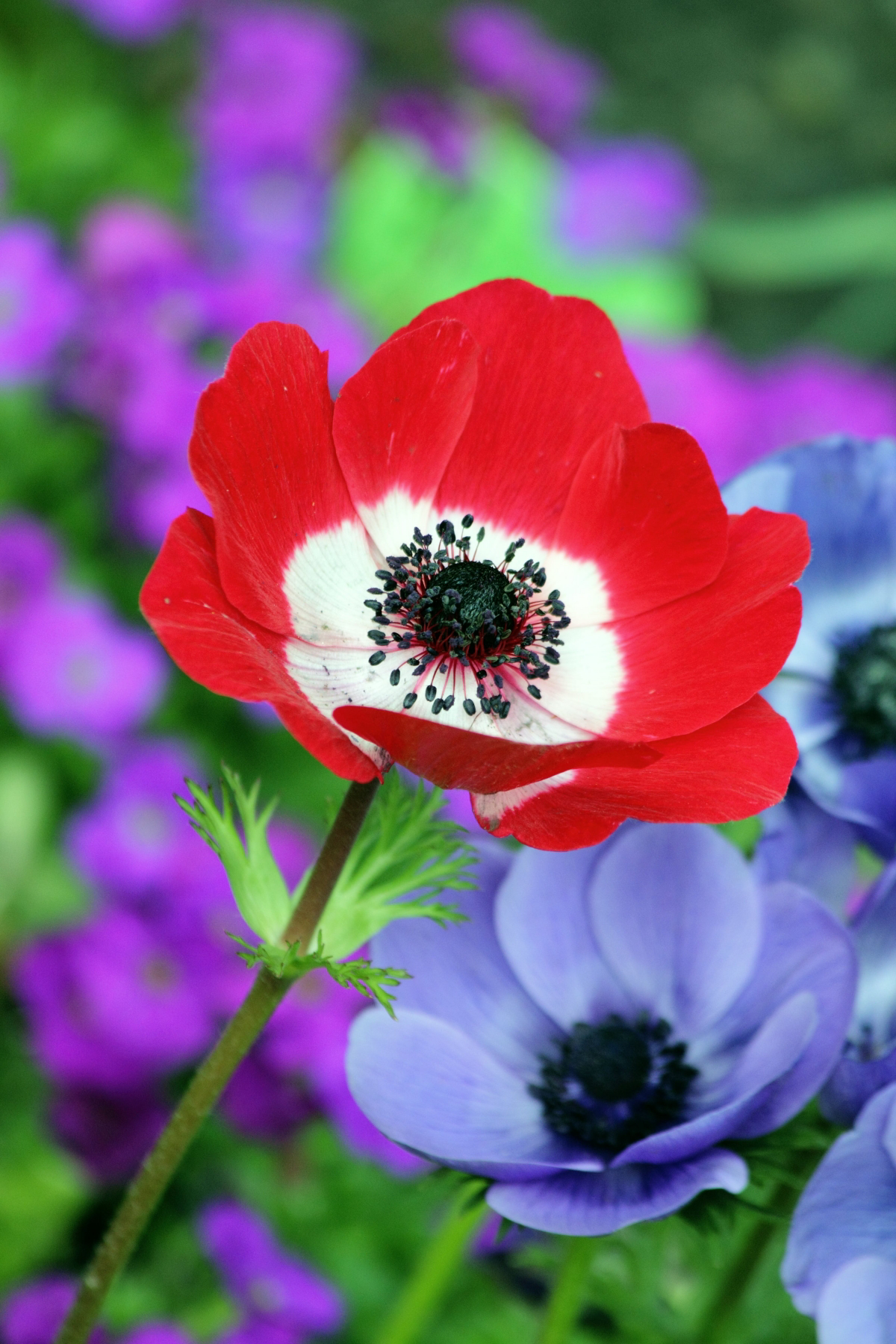
Watering
- Maintain Consistent Moisture: During the initial stages, it’s crucial to keep the soil consistently moist. However, be cautious not to overwater and create waterlogged conditions. Poppy roots are susceptible to rot in excessively wet soil.
- Targeted Watering: When watering your poppies, direct the water at the base of the plant rather than overhead. This method helps prevent fungal diseases, ensuring the health of your poppies.
- Transition to Tolerance: As your poppies become established, they will develop a degree of drought tolerance. This means they can handle drier conditions. Adjust your watering regimen accordingly, allowing the soil to dry slightly between watering sessions.
When watering your plants, direct the water at the base of the plant
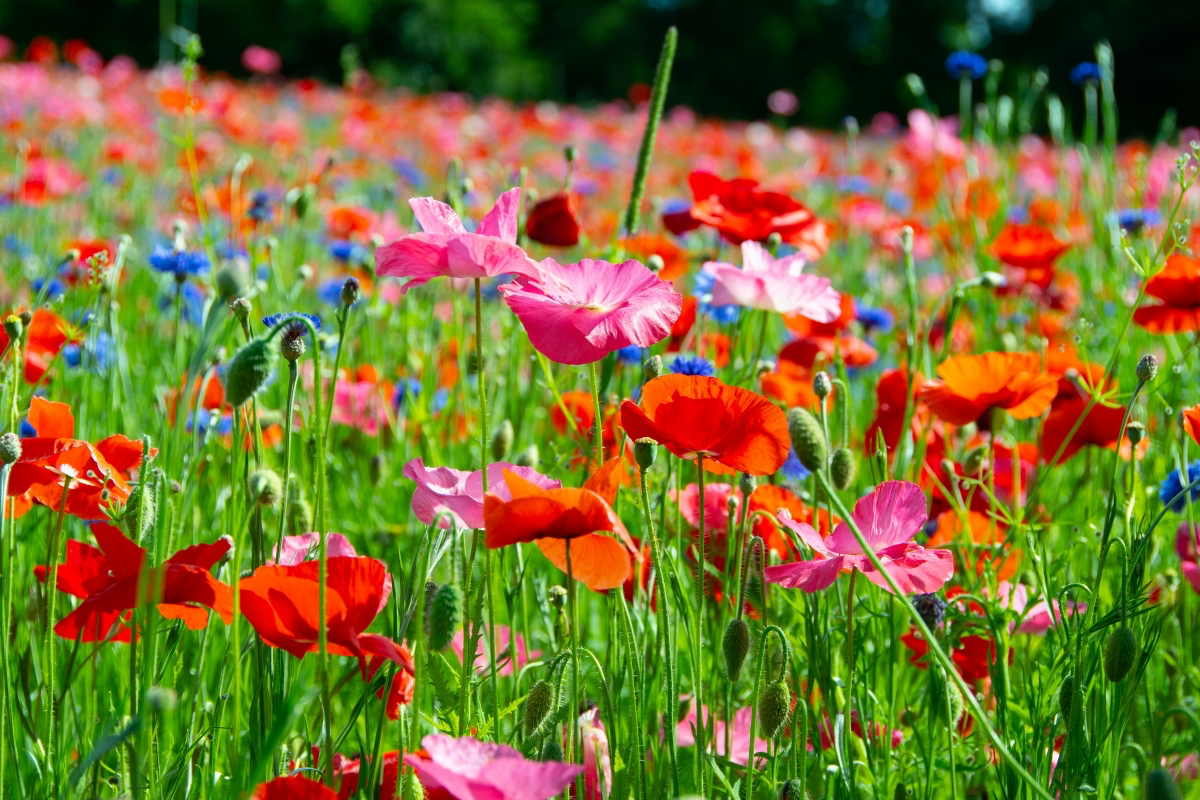
Light
- Full Sun Enthusiasts: Poppies are sun-worshippers, and they flourish when bathed in full sun. Aim to provide them with a minimum of 6 hours of direct sunlight each day. This abundance of light contributes to their robust growth and vibrant blooms.
These flowers are sun-worshippers, and they flourish when bathed in full sun
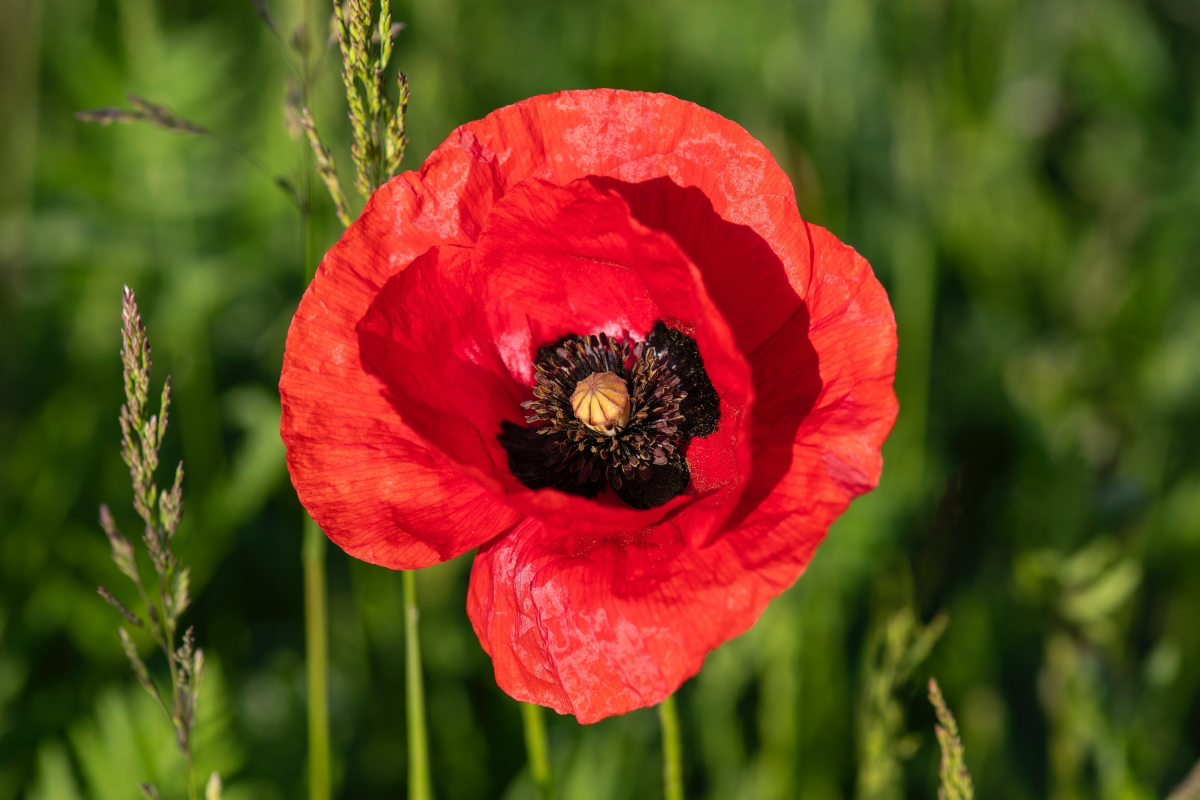
Temperature
- Hardy Beauties: Poppies are hardy and adaptable plants, capable of thriving in various temperature ranges. While they can tolerate different climates, they tend to prefer cooler conditions for optimal growth. Ensure your local climate aligns with their temperature preferences.
These are adaptable plants, capable of thriving in various temperature ranges
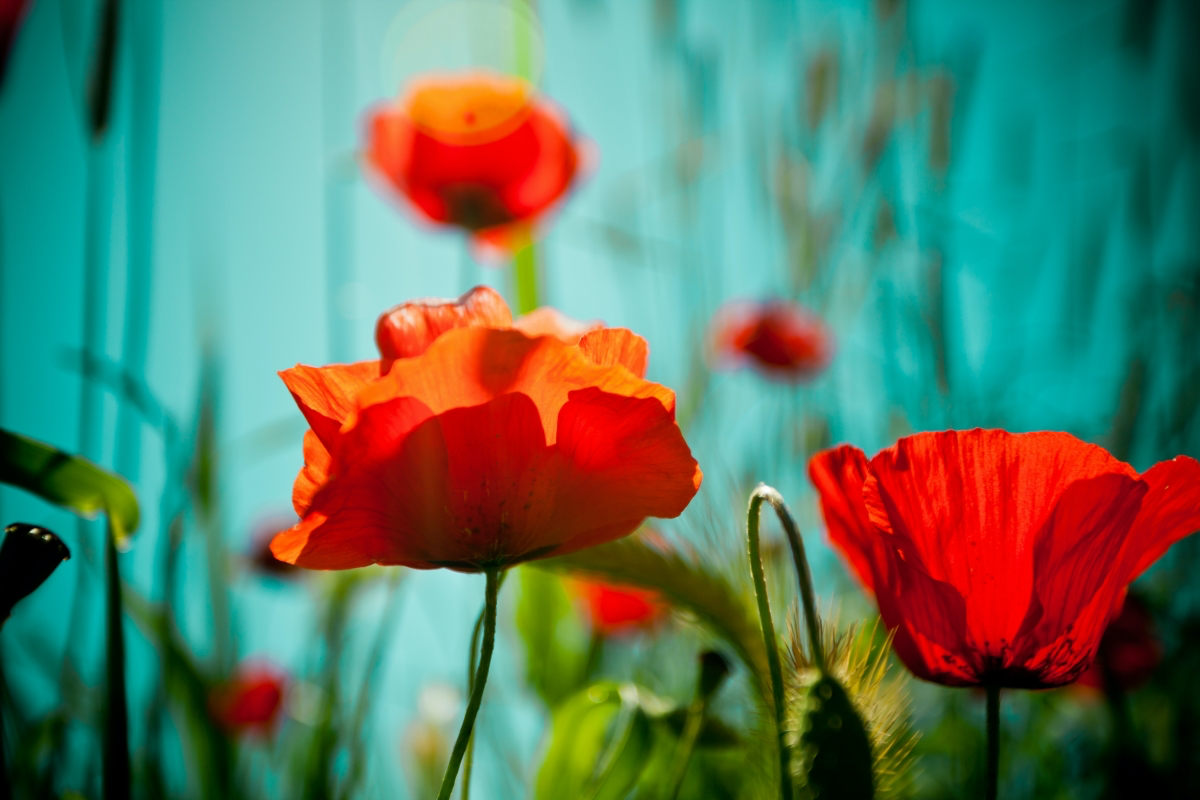
Fertilization
- Balanced Nutrition: When it comes to fertilization, less is often more with poppies. Opt for a balanced, all-purpose fertilizer, but apply it sparingly. Over-fertilization can lead to excessive foliage growth at the expense of blooms. A light application during the growing season should suffice.
Opt for a balanced, all-purpose fertilizer, but apply it sparingly
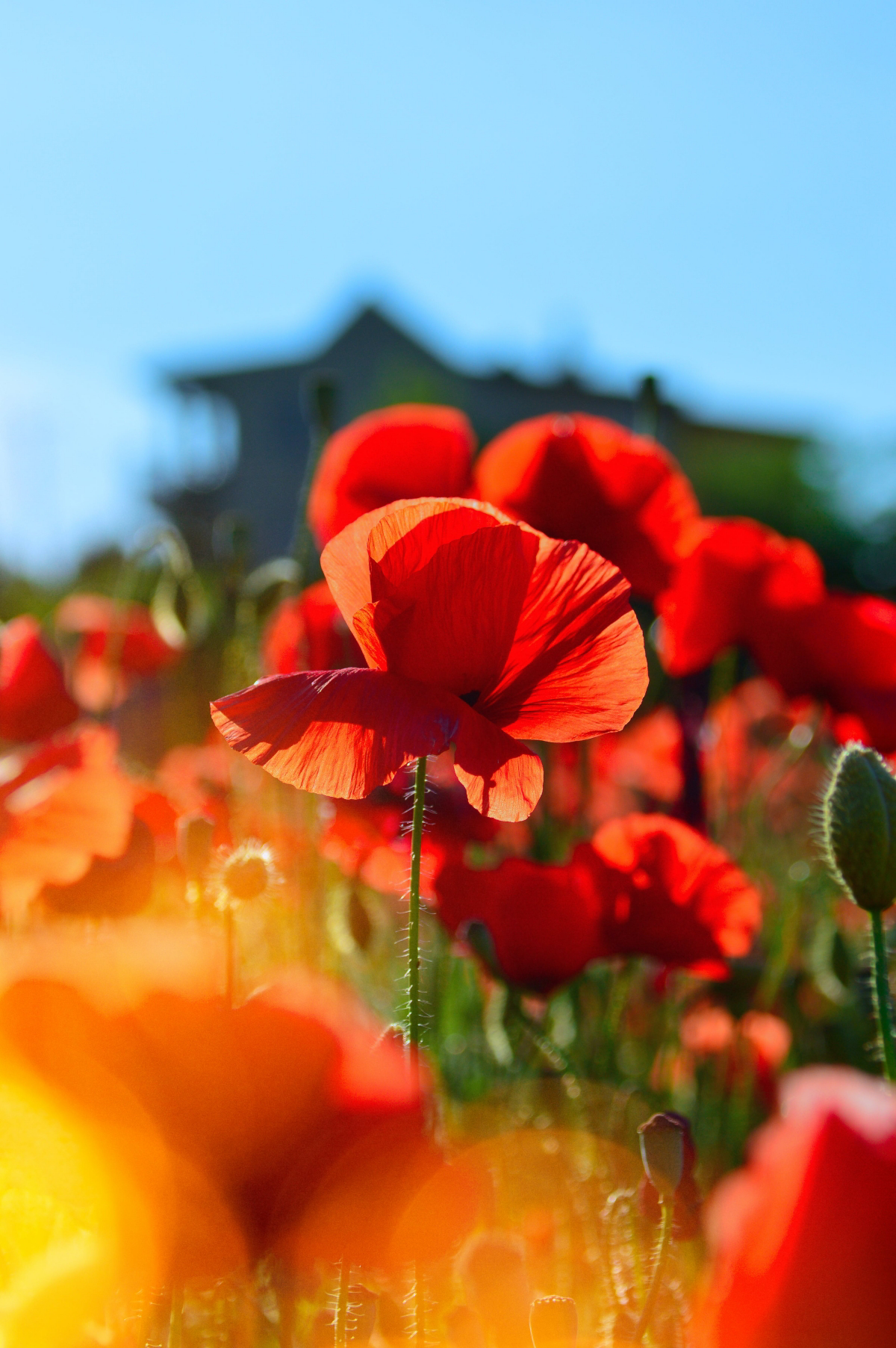
Placement
- Consider Height: While poppies are generally self-supporting, some taller varieties may require staking to prevent them from flopping over. Evaluate the height potential of your chosen poppy variety and provide support as needed to maintain their elegance.
Some taller varieties may require staking to prevent them from flopping over
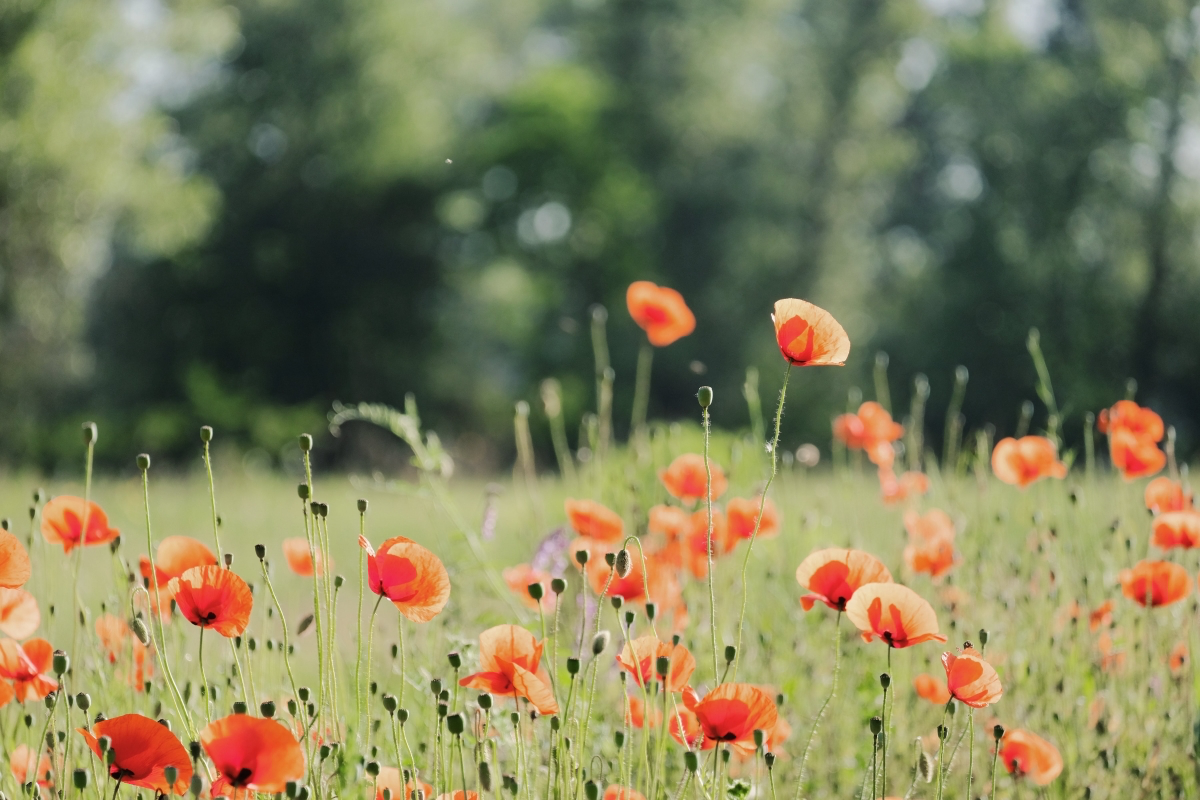
Humidity
- Adaptability: Poppies are adaptable when it comes to humidity levels. They can tolerate varying moisture conditions and humidity levels, making them suitable for a wide range of climates.
The poppy flower is adaptable when it comes to humidity levels
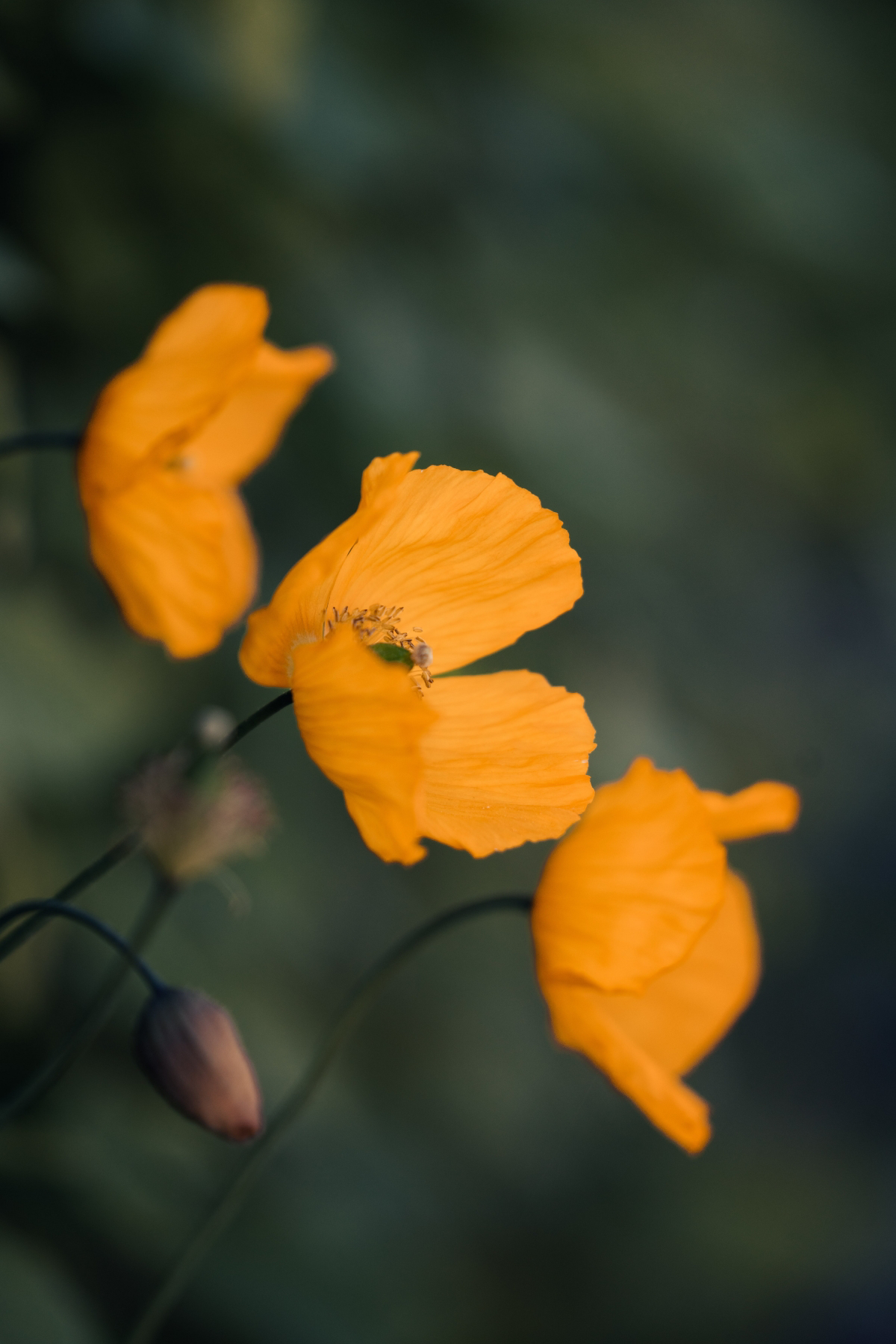
Soil
- Drainage is Key: As previously mentioned, well-draining soil is essential to prevent root rot. While poppies aren’t overly picky about soil type, they do demand good drainage. Ensure your garden soil meets this requirement.
These flowers are not picky about soil, but they demand good drainage
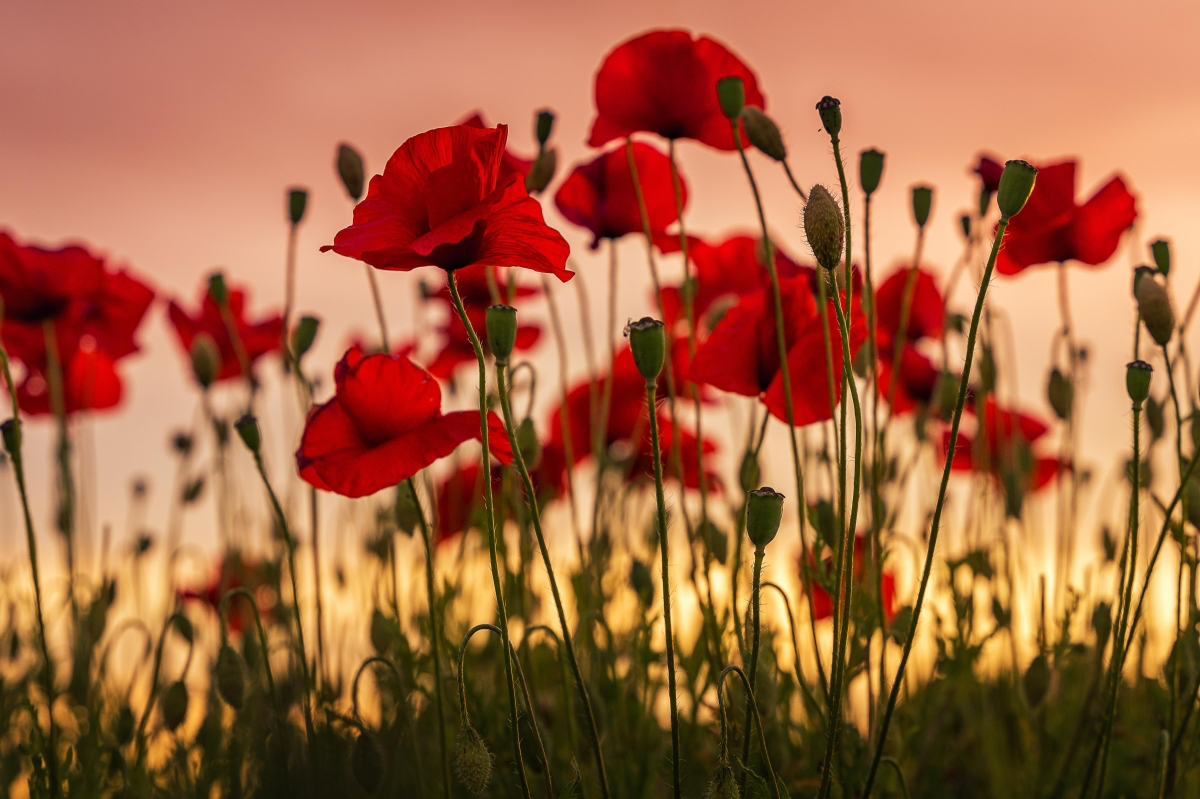
Type of Pot
- Container Gardening: If you’re planning to grow poppies in containers, make sure the pots have proper drainage holes. Adequate drainage is just as critical in containers as it is in garden beds. Ensure excess water can escape to prevent root issues.
Repotting
- No Need for Repotting: Poppies are typically grown from seeds and do not require repotting once they are established. Their initial planting spot should provide ample space for them to grow and thrive.
Propagation
- Self-Seeding Wonders: Poppies have a unique ability to self-seed, allowing them to perpetuate in your garden. To encourage future blooms, allow some of your poppies to go to seed. These seeds will scatter naturally, ensuring a delightful display in the seasons to come.
These plants have a unique ability to scatter naturally and self-seed
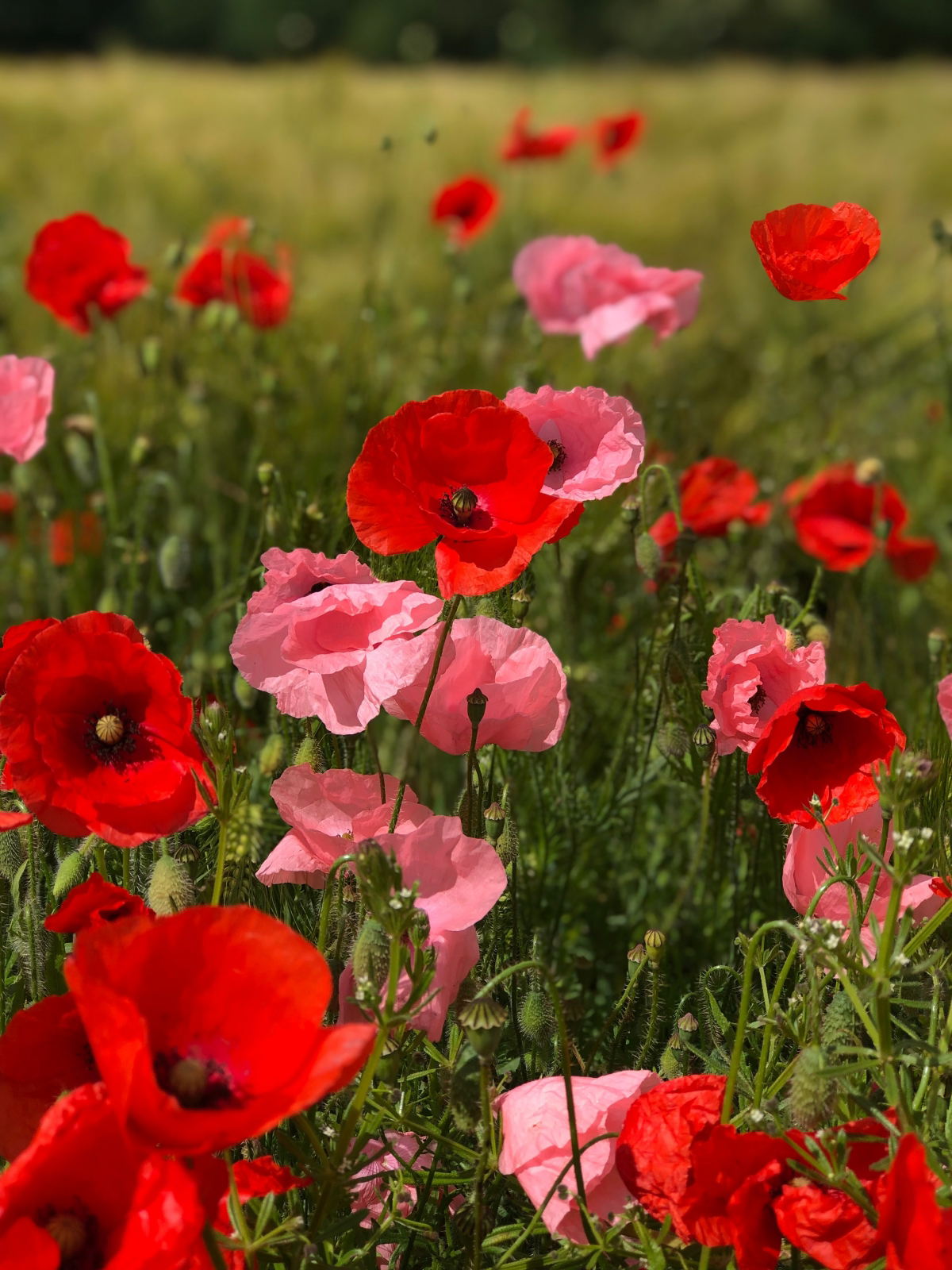
Pests
- Vigilance is Key: Keep a watchful eye on your poppies for potential pests such as aphids, snails, and slugs. These common garden intruders can damage your plants. If necessary, employ organic pest control methods to protect your poppies.
Keep a watchful eye on your plants for potential pests
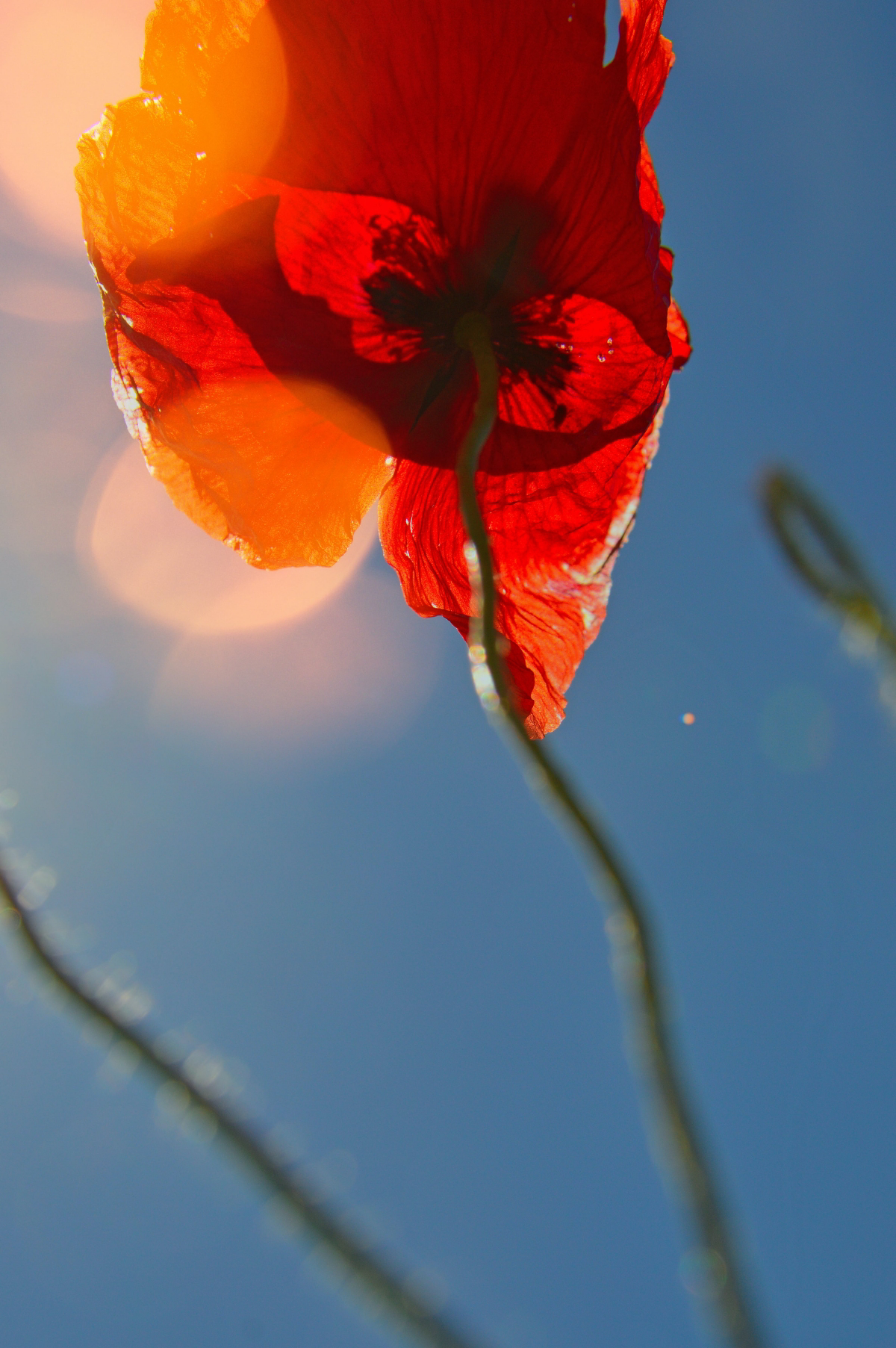
With this comprehensive guide to growing and caring for poppies, you’re well-equipped to nurture these captivating blooms and enjoy their vibrant beauty in your garden. Cultivating these flowers is not just a gardening endeavor; it’s a delightful journey of color, elegance, and grace.
Conclusion
In the realm of gardening, poppies are the enchanting muses that beckon you into their world of color and charm. With their diverse varieties and relatively fuss-free nature, they are the perfect addition to any garden. Whether you’re a seasoned gardener or a budding enthusiast, cultivating these flowers is a journey filled with beauty and grace. So, why wait? Plant these floral treasures, and let your garden dance with the enchantment of poppies.
Now you know why poppies are the the perfect addition to any garden!
